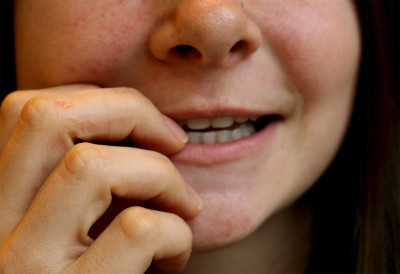
Widespread conversations on the importance of mental health on campus have led several student organizations and administrative departments to push for mental health initiatives. Boston University Student Health Services, BU Student Government and some individual students continue to produce efforts to increase awareness and better care for student mental health.
A new program called Campus Connect will be coming to BU in the Spring 2016 semester, Dori Hutchinson, director of services at BU’s Center for Psychiatric Rehabilitation, said.
“It’s really a public health approach to creating and building this campus culture of caring for each other through gatekeeper training for students, for empathetic listening, for distress on campus and for faculty and staff,” Hutchinson said.
Carrie Landa, director of behavioral medicine at SHS and leader of Campus Connect, said providing training is a “very common effort on college campuses” that would decrease stigma and work towards suicide prevention.
“[The program] is about training people to talk to students about sensitive mental health issues and provide them with accurate information about access to care on campus,” she said. “[The program] also includes a peer listening program which is something that students have been requesting.”
Hutchinson said students’ voices play an important role in demanding an increase in the availability of mental health and behavioral medicine resources.
“Places like behavior medicine are under-resourced as an organization, and [places like SHS] would gladly take more clinicians and more space, and those are issues that students are asking for and working with the university for,” she said.
An increasing number of students are seeking help with their mental health, Hutchinson said, but the resource insufficiency at centers such as SHS “plays into things like students having to wait for a regular appointment.”
Hutchinson said sometimes as a society, “we disconnect mental health from student life,” and ask about the role of an academic institution in a student’s medical life.
“We know from research that good mental health is associated with good academics and healthy lives,” she said.
On Oct. 16, the Student Government Advocacy Department sent out via email their Mental Health Survey to the student body. The survey aims to gather information that will be brought to the BU administration to make “concrete and impactful changes” in the ways students receive mental health care on campus, the email stated.
2,300 students completed the survey, SG President Andrew Cho said during a Senate meeting on Oct. 20, The Daily Free Press reported. Data gathered will be analyzed by the Advocacy Department to be forwarded to SHS, Cho, a senior in the College of Arts and Sciences, said.
Ramya Ravindrababu, a junior in CAS, took her mental health initiative to SG during a Senate meeting Sept. 29. Ravindrababu received a letter of support unanimously voted on and signed by SG. The letter allowed her to present the argument of requesting more funding for behavioral medicine at BU.
Ravindrababu said there has been progress on her initiative since she received the letter from SG. The Panhellenic Council and the Undergraduate Psychology Association had shown support for her initiative, Ravindrababu said.
“I have been raising awareness by bringing this idea to other student organizations to gather support in order to send the message that students support increased funding for behavioral medicine,” she said. “As a campus, we could do a better job at prioritizing the mental well-being of our students and our community [and] we are certainly making strides in this direction.”
In response to the survey, Landa said, “it’s great to hear that students and student leaders are interested in supporting such an important cause that is clearly very important to me, and student health in general.”
Hannah Jacobs, a freshman in the Sargent College of Health and Rehabilitation Sciences, said programs like Campus Connect would bring positive impact to numerous students. Having more therapists available on campus would also be beneficial because a “long waiting list to get a therapist” should not exist, Jacobs said.
“I realize how important mental health is and how unfortunately prevalent poor mental health is among college age kids,” she said. “Almost everyone will at some point come in contact with a friend or relative experiencing poor mental health and it’s really important to know how to deal with that not only for the benefit of the person struggling but also for yourself.”
BU has provided adequate mental health care for students, Jacobs said, however, “adequate isn’t enough.” There needs to be more advertisement for group talks and counseling, she said.
“Everyone at some point probably could benefit from talking to a therapists,” she said. “Knowing that that is an option can be very helpful to a lot of people.”
























































































































Harold A. Maio • Nov 12, 2015 at 11:06 am
—Decrease stigma?
One does not accept “stigmas”. All students have the right to be free of prejudice.
The proper avenue for redress when encountering this prejudice is to file an ADA complaint.